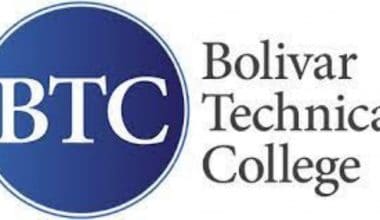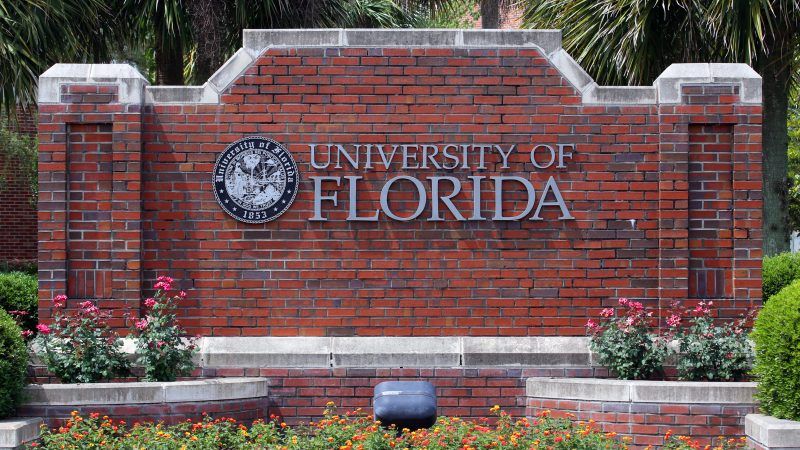It is very clear that the United States has some of the best institutions for any health-related program. One of the fields is nursing.
Then in the US, there are states that stand out in giving nursing students the best education.
Arizona stands out as one of the states in the U.S. where you can get the best-accredited nursing schools. Consequently, these institutions will give you exposure to the current methods of healthcare administration.
If you study nursing in the U.S., you will have access to learning in state-of-the-art clinical facilities, and some of the best lecturers worldwide in the field will train you.
Also, if you are an international student, you will acquire training in acute care hospitals, hospice care centers, and outreach clinics.
There are several programs that the top accredited nursing schools in Arizona offer. They include LPN or LVN programs, ADN programs, BSN programs, Accelerated BSN programs, RN to BSN programs, MSN programs, CRNA programs, and DNP programs.
Do you dream of studying in the USA to become a nurse? Then, Arizona is the right destination for you. In this article, you will learn about the available programs in Arizona nursing schools, the admission requirements, and their costs.
Table of contents
- Why Study Nursing?
- What Does A Nurse Do?
- What Are The Educational Requirements To Become A Nurse In Arizona?
- How Much Does It Cost To Study Nursing In Arizona?
- How Long Will It Take Me To Study In A Nursing School In Arizona?
- How Can I Acquire A Nursing License In Arizona?
- How Much Will I Earn As a Nurse In Arizona?
- What Is The Job Outlook Of Nurses In Arizona?
- What Are The Best Accredited Nursing Schools In Arizona?
- FAQs On The Best BSN Nursing Schools In Arizona
- References
- Recommendations
Why Study Nursing?
Nursing as a profession continues to be a very rewarding career all over the world. A recent survey shows that Americans consider nursing to be the most honest, trusted, and ethically-sound profession in the U.S.
Below are some of the reasons why students choose to pursue a career in nursing.
The chief reason why students choose nursing is that the profession is a rewarding and satisfying job that is focused on helping people.
Nurses are healthcare professionals that are well respected and trusted. Their job revolves around helping others to improve their health and well-being, saving lives, or making them just a little bit better.
Upon graduation and acquiring your certification, you are very certain about acquiring a job immediately. Do you know why? This is because nursing is one of the most highly employable degrees. Statistics show that over 94% of graduate, nurses gain employment in the field within six months of graduation.
Studying to become a nurse will teach you several clinical, technical, and interpersonal skills that you can apply in any field of healthcare. Nurses need these skills because the profession is a multi-dimensional field.
From working on a medical team and directly with patients, performing lab work and researching treatment methods, consulting families, and setting up long-term patient care plans, these skills will help the nurses to be efficient.
Finally, there are lots of scholarships for nursing students worldwide. These financial aids will remove the burden of paying for the huge tuition fees that nursing schools will require. It will also prevent students from borrowing students loan and running into debt.
What Does A Nurse Do?
A nurse is a healthcare professional that gives care to people who are sick or injured. Nurses work with doctors and other healthcare assistants to make patients well and to keep them fit and healthy.
They work in several places including hospitals, doctor’s offices, and the community. Nurses, on the other hand, visit patients at home if they cannot get out as a result of illness.
Therefore, the duties of a nurse are summarized below:
- Recording medical history and symptoms
- Collaborating with the team to plan for patient care
- Advocating for the health and well-being of the patient
- Examining patient health and recording signs
- Administering medications and treatments
- Operating medical equipment
- Performing diagnostic tests
- Educating patients about the management of illnesses
- Offering support and advice to patients
Read: 15 Best Nursing Schools in the World | 2024
What Are The Educational Requirements To Become A Nurse In Arizona?
Becoming a nurse in Arizona starts in high school. Students that wish to pursue a career in Nursing can enhance their college application by taking advanced courses in areas such as biology, chemistry, algebra, and geometry.
Applicants should focus on making high standardized test scores because Accredited Nursing schools in Arizona require SAT or ACT scores.
Afterward, you apply to any Nursing school of your choice in Arizona. While applying, ensure to check if the Arizona Nursing school has CCNE or ACNE accreditation.
In the same vein, applicants must possess a GPA of 3.4 or higher and submit all academic transcripts for the BSN.
During the Bachelor of Science in Nursing program (BSN), students will take coursework in anatomy, health assessment, pharmacology, nursing informatics, and professional transitions.
Upon successful completion of the BSN, graduates must take and pass the NCLEX exam. The NCLEX is a standardized test for the licensing of nurses in the U.S.A. and Canada.
Once the candidate passes the NCLEX exam, they will acquire licensure to practice as a licensed nurse in Arizona.
Read and attend: Nursing Conferences for International Students
How Much Does It Cost To Study Nursing In Arizona?
The cost of acquiring a Nursing degree in Arizona varies from each school. While making your admission decision to any Nursing school of your choice, you will have to consider tuition fees. This is will give you the insight to determine the school you can afford its cost.
You can expect to pay tuition fees ranging from $40,000 to $200,00 to acquire a Bachelor of Science in Nursing (BSN) program in Arizona. Additionally, your in-state or out-of-state status will greatly influence the cost of acquiring a Nursing education in Arizona.
Get to know the: Easiest Nursing Schools to Get into in 2024 | Expert Guide
How Long Will It Take Me To Study In A Nursing School In Arizona?
The Bachelor of Science in Nursing (BSN) program in Arizona takes four (4) years to complete. However, each Nursing school has the capacity to offer programs that capitalize on a student’s former experiences.
Two methods that are often used here are the RN-to-BSN track and the Accelerated BSN track. Each of these programs usually takes about two (2) years to complete.
How Can I Acquire A Nursing License In Arizona?
The State of Arizona appears to be a Compact State. However, if your Primary State of Residency is in another Compact State (AR, CO, DE, ID, IA, KY, MD, ME, MO, MS, NE, NH, NM, NC, ND, RI, SC, SD, TN, TX, UT, VA, WI), do not apply for licensure in Arizona. You can only apply to Arizona if you are declaring Arizona as your Primary State of Residency.
Click here to see the list of compact states.
Nurses who are applying to Arizona must declare the State of Arizona as their Primary State of Residence. In addition, they must have an active license with multi-state privileges with another compact state that may use their current compact license until Arizona issues a new license.
Meanwhile, Arizona will send you a memo via mail so that you can inactivate your current compact license after issuing you a license.
Requirements For Nursing Licensure In Arizona
Below are the requirements for Nursing licensure in Arizona:
- Applicants must have successfully completed a Board-approved nursing program.
- Candidates should have a passing score on the National Council Licensure Exam (NCLEX) or the State Board Test Pool Exam (SBTPE).
- Applicants must possess a previous or current license in another state or territory.
- Candidates must have met one of the following practice requirements:
- Practiced as a nurse for 960 hours or more in the past 5 years. OR
- Graduated from a nursing program and obtained a degree within the past 5 years. Or
- Completed an Arizona Board approved refresher course in the past 5 years. OR
A refresher shall offer:
- A minimum of 40 hours of didactic instruction and 112 hours of supervised clinical practice for a licensed practical nurse program.
- A minimum of 80 hours of didactic instruction and 160 hours of supervised clinical practice for a professional nurse program.
- RN applicants must hold a Diploma, Associate Degree, or Baccalaureate Degree in Nursing from an approved program. Or
- LPN applicants must possess a Diploma or Certificate from an approved program.
- Possess Board approval for applicants under investigation.
- LRN applicants hold a Diploma, Associate Degree, or Baccalaureate Degree in Nursing from an approved program. OR
- LPN applicants hold a Diploma or Certificate from an approved program. View the list of RN / LPN exceptions on the Apply for a License page.
- Have Board approval for applicants under investigation.
How Much Will I Earn As a Nurse In Arizona?
According to Payscale, an entry-level Nurse with less than one year of experience makes an average of $27.73 per hour.
Registered Nurses (RN) that have between 1 to 4 years of experience make an average of $29.85 per hour. Mid-career Registered Nurses (RN) with 5 to 9 years of experience make an average of $34.82 per hour.
Registered Nurses that have experience ranging from 10 to 19 years make an average of $37.18 per hour. In their later career (20 years and higher), Registered Nurses make an average of $40 per hour.
Check Out: 13 Affordable Online LPN to RN Programs for Nurses
What Is The Job Outlook Of Nurses In Arizona?
Students studying to acquire a BSN in Arizona nursing schools continue to show an extreme interest. According to the Arizona State Board of Nursing, the number of Nursing graduates from RN to BSN programs increased by 262% between 2004 and 2008.
The American Association of Colleges of Nursing reports that there were 17,201 students enrolled in BSN programs in Arizona.
On the other hand, Nursing graduates in Arizona face a strong job market. According to Arizona’s Office of Employment and Population Statistics, the number of jobs for Registered Nurses (RN) is expected to increase by 25.6% through 2024.
With this level of growth, there should be an average of 2,190 jobs each year in the field of Nursing during this period.
What Are The Best Accredited Nursing Schools In Arizona?
We have compiled a list of the best accredited BSN Nursing schools in Arizona that offer several degree programs for you.
Ranking Methodology
The best-accredited Nursing schools in Arizona were arranged according to our ranking factors. These ranking factors are as follows:
Acceptance Rate: The acceptance rate for each school shows how admissions are offered in each Nursing school. Lower percentages show that the university has a strict admission policy and so, therefore, admissions are highly competitive.
Number of Programs: This shows the exact number of degree programs each top Nursing school in Arizona offers. For example, LPN or LVN programs, ADN programs, BSN programs, Accelerated BSN programs, RN to BSN programs, MSN programs, CRNA programs, and DNP programs.
NCLEX Pass Rate: The rate at which students at each Arizona BSN Nursing school pass the National Council Licensure Examination to gain licensure in order to practice as a nurse in the U.S.A or any part of the world.
Accreditation: This explains the BSN schools in Arizona that hold accreditation from the ACEN or CCNE. These bodies ensure and certify that each school has the facilities and environment to offer any Nursing program in the state of Arizona.
Graduation Rate: The rate at which students in each Nursing school in Arizona complete their programs successfully.
Tuition Fees: The amount it will cost a student to acquire a Nursing degree in Arizona.
Student-Faculty Ratio.
Using this ranking methodology, below are the best-accredited schools for Nursing in Arizona:
- Northern Arizona University
- Arizona College
- Arizona State University
- Grand Canyon University
- University of Phoenix
- Pima Medical Institute
- The University of Arizona
- Glendale Community College
- Carrington College, Phoenix
- Cochise College
1. Northern Arizona University
Northern Arizona University is a public research university that was founded in 1899. The university’s main campus is in Flagstaff, Arizona.
NAU offers undergraduate and graduate programs in its school of Nursing. Under the undergraduate degree program, you will get programs including the BSN program, RN to BSN program, Accelerated Option, Mid-ASS program, and Concurrent Enrollment Program (CEP).
Meanwhile, the BSN program is a four and a half years program involving nine semesters of study.
Under the graduate level, you will offer advanced courses in the field. The range of programs at the graduate level includes a Master of Science in Nursing (MSN), Clinical Nurse Specialist Prescribing, and Doctor of Nursing Practice.
Furthermore, NAU offers an online Nurse Practitioner program as well as an online Master of Science in Nursing. This makes NAU one of the best-accredited Nursing schools in Arizona.
NCLEX Pass Rate: 91.03%
NAU has an acceptance rate of 83%, a graduation rate of 53%, and a student-faculty ratio of 19:1. The tuition fee for Northern Arizona’s School of Nursing is $10,650 (Arizona residents) and $25,396 (out-of-state).
Northern Arizona’s School of Nursing holds accreditation from the Commission on Collegiate Nursing Education (CCNE).
Read and apply: Top 5 Nursing Scholarships For National And International Students in 2024
2. Arizona College, Tempe
Arizona College, Tempe is a for-profit college located in Tempe, Arizona. The institution is known for its innovation and academic excellence.
The BSN program at this top Nursing school in Arizona is an accelerated program. This accelerated program takes three (3) years or less to complete. (https://hotelfauchere.com/)
Additionally, the program includes 630 hours of clinical experience. The curriculum employs real-life scenarios and simulations to better prepare students for nursing practice.
NCLEX Pass Rate: 100%
On the other hand, Arizona College, Tempe has a student-faculty ratio of 20:1. The tuition fee for the Nursing program at Arizona College is $18,880.
The nursing program at Arizona College, Tempe is accredited by the Commission on Collegiate Nursing Education (CCNE).
3. Arizona State University
Arizona State University is a public metropolitan research university that was established in 1885. The university has five campuses across the Phoenix metropolitan area as well as four regional learning centers throughout Arizona.
The Edson College of Nursing and Health Innovation offers the nursing program at ASU. This Arizona School of Nursing offers its students hands-on experience in state-of-the-art simulation environments.
The program also helps students to develop innovative solutions with cross-disciplinary partners and carry out research alongside nationally recognized faculty.
In addition, Arizona State University offers an online nursing program for those that wish to study from any region in the world.
The online program offers self-paced learning, enabling students to combine studies with work and family duties. This makes ASU one of the top BSN Nursing schools in the state of Arizona.
NCLEX Pass Rate: 92.83%
ASU, on the other hand, has an acceptance rate of 85%, a graduation rate of 67%, and a student-faculty ratio of 20:1. The tuition fee for the Nursing program at ASU is $10,104.
The Edson College of Nursing and Health Innovation at ASU holds accredited by Commission on Collegiate Nursing Education.
Read: Best Nursing Schools In Houston Texas | Requirements, Cost
4. Grand Canyon University
Grand Canyon University is a for-profit, private, Christian university in Phoenix, Arizona that was founded in 1949.
The College of Nursing and Health Care Professions at GCU offers a nursing program. In fact, this College of Nursing prepares students to fill emerging healthcare roles as world-class professionals educated in direct care, management, health education, and administration.
Additionally, the College of Nursing and Health Care Professions offers a wide range of Nursing programs.
These programs include a pre-licensure degree program for the registered nurse (RN) to Bachelor of Science in Nursing (BSN) and Bridge to Master of Science in Nursing (MSN), as well as a Master of Science in Nursing (MSN), and a Doctor of Nursing Practice (DNP). The College also offers a variety of online Nursing programs.
NCLEX Pass Rate: 98.2%
On the other hand, GCU has an acceptance rate of 73%, a graduation rate of 32%, and a student-faculty ratio of 20:1. The tuition fee for the Nursing program at GCU is $16,500.
GCU’s College of Nursing and Health Care Professions holds accreditation from the Commission on Collegiate Nursing Education (CCNE).
5. University of Phoenix
The University of Phoenix is a for-profit university with its headquarters in Phoenix, Arizona that was established in 1976.
UOPX’s School of Nursing administers an online Nursing Bridge Program. This online program allows students to earn RN to Bachelor of Science in Nursing (BSN) and a Master’s Degree in Nursing (MSN).
These programs teach students the theory and practice of contemporary nursing including evidence-based practice, quality, patient safety, and leadership.
Furthermore, the university has an acceptance rate of, a graduation rate of 31%, and a student-faculty ratio of 55:1. The tuition fee for the Nursing program at the University of Phoenix is $9,464.
The University of Phoenix’s Bachelor of Science in Nursing and the Master of Science in Nursing programs are accredited by the Commission on Collegiate Nursing Education.
6. Pima Medical Institute
The Pima Medical Institute is a private for-profit medical career school that was established in 1972. It trains students for careers as related healthcare specialists.
The institute does not offer a traditional BSN. However, students must first become Registered Nurses (RNs) before they can enroll in the RN to BSN program. This program is only for nurses with experience in the field.
Pima Medical Institute has an acceptance rate of 100% and a student-faculty ratio of 25:1. The tuition fee for the Nursing program at PMI is $13,377.
PMI holds accreditation from the Accrediting Bureau of Health Education Schools (ABHES).
Read Also: Best Nursing Schools in Georgia | 2024 Programs, Requirements, Cost, Job Outlook
7. The University of Arizona
The University of Arizona is a public research university in Tucson, Arizona that was established in 1885. It appears to be the first university in the state of Arizona.
The College of Nursing at UofA administers the Nursing program. The BSN program here takes four years to complete.
If you have a degree in a related field, you can as well acquire the Master’s Entry to Professional Nursing program. This program will prepare you to become a registered nurse.
Alternatively, the College of Nursing offers an online Master of Science in Clinical Systems Leadership program to RNs who wish to advance their careers as working professionals with either an Associate’s or Bachelor’s degree in nursing.
Its high NCLEX pass rate makes the institution one of the best-accredited nursing schools in Arizona.
NCLEX Pass Rate: 96.30%
UofA, on the other hand, has an acceptance rate of 84%, a graduation rate of 60%, and a student-faculty ratio of 15:1. The tuition fee for the Nursing program at UofA is $16,691 per year (Arizona residents) and $40,718 per year (out-of-state).
The University of Arizona’s Nursing program is accredited by the Commission on Collegiate Nursing Education (CCNE).
8. Glendale Community College
Glendale Community College is a community college in Glendale, Arizona that was founded in 1965.
GCC’s Department of Nursing does not have a BSN option, however, it offers the Associate in Applied Science (AAS) in Nursing. This program qualifies students to sit for the NCLEX exam.
Furthermore, GCC has an acceptance rate of 100%, a graduation rate of 14.5%, and a student-faculty ratio of 26:1. The tuition fee for the Nursing program at Glendale Community College is $2,270 (Arizona residents) per year.
The Nursing program at Glendale Community College is accredited by the Accreditation Commission for Education in Nursing (ACEN).
See: How to Get a Nursing Degree Online in 2024: Schools, Cost, Job Outlook
9. Carrington College, Phoenix
Carrington – Phoenix is an above-average for-profit college in Phoenix, Arizona that was founded in 1967. This college is a small institution that has an enrollment of 401 undergraduate students.
The institution offers a Practical/Vocational Nursing Certificate, an Associate Degree in Nursing (RN) program, and a hybrid-based RN bridge program for the Licensed Practical/Vocational Nurse.
Meanwhile, the RN program for the Associate Degree in Nursing takes two years to complete afterward the student is eligible to take the NCLEX.
NCLEX Pass Rate: 78%
Carrington College, on the other hand, has an acceptance rate of 90% and a student-faculty ratio of 39:1. The tuition fee for Carrington College’s Nursing program is $23,906 per year (Arizona residents).
The nursing program at Carrington College, Phoenix holds accreditation from the Accreditation Commission for Education in Nursing (ACEN).
10. Cochise College
Cochise College is a public college in Arizona that was established in 1964. The institution has campuses in Douglas and Sierra Vista, and centers in Benson, Fort Huachuca, and Willcox.
The nursing program at Cochise College is the Associate in Applied Science (AAS) in Nursing. Upon completion of the AAS in Nursing, graduates qualify to take the NCLEX exam.
The nursing program at Cochise College teaches both theory and practical skills, together with hands-on experience through a combination of lectures, labs, and clinical assignments.
NCLEX Pass Rate: 93.9%
Cochise College has an acceptance rate of 100%, a graduation rate of 10.8%, and a student-faculty ratio of 16:1. The tuition fee for the Nursing program at Cochise College is $91 per credit hour (Arizona residents) and $260 per credit hour (out-of-state).
The institution’s Nursing program holds accreditation from the Accreditation Commission for Education in Nursing (ACEN).
FAQs On The Best BSN Nursing Schools In Arizona
Yes. Nursing is worth it because the profession is one of the most respected fields in the world. On most occasions, patients interact more with nurses than doctors.
Yes, it is. Nurses face difficult situations and stressors on a daily basis. (treehouselodge.com) The stress starts when nursing students start their education and probably ends when they retire from the profession.
Nurses in the state of Arizona make an average of $31 per hour.
It will take you between two (2) to four (4) weeks from the time of application to gain your nursing license in Arizona.
Yes, Arizona is a Nurse Compact state at the RN and PN levels. In fact, candidates from other compact states won’t need to apply for licensure unless Arizona is to become their primary state of licensing.
Application Fee: $150 (Required)
Fingerprint Fee: $50 (Required)
Temporary License Fee: $50 (Optional)
References
- 10 Best Nursing Programs in Arizona
- Apply for a License | Arizona State Board of Nursing
- The 16 Best Nursing Programs & Schools in Arizona
Recommendations
- 10 Most Useful Websites Online for Nursing Students
- 20 Most Affordable Online Family Nurse Practitioner (FNP) Programs
- How Can I Become A Nurse Anesthetist? Schools, Programs, Cost.
- MU Sinclair School of Nursing Ph.D. Student Fellowship in USA, 2024
- 11 Top Certified Nursing Assistant Online Classes [SHARE]
- Types of Nursing Majors | Where can I work with a Nursing Degree?
- Top 10 Best Universities in Arizona
Does this article meet your immediate needs? If yes, leave us with a 5-star rating in the Review Box below. However, if not, leave a comment in the comment box to express your concern or ask a question and we will get back to you as soon as possible.





